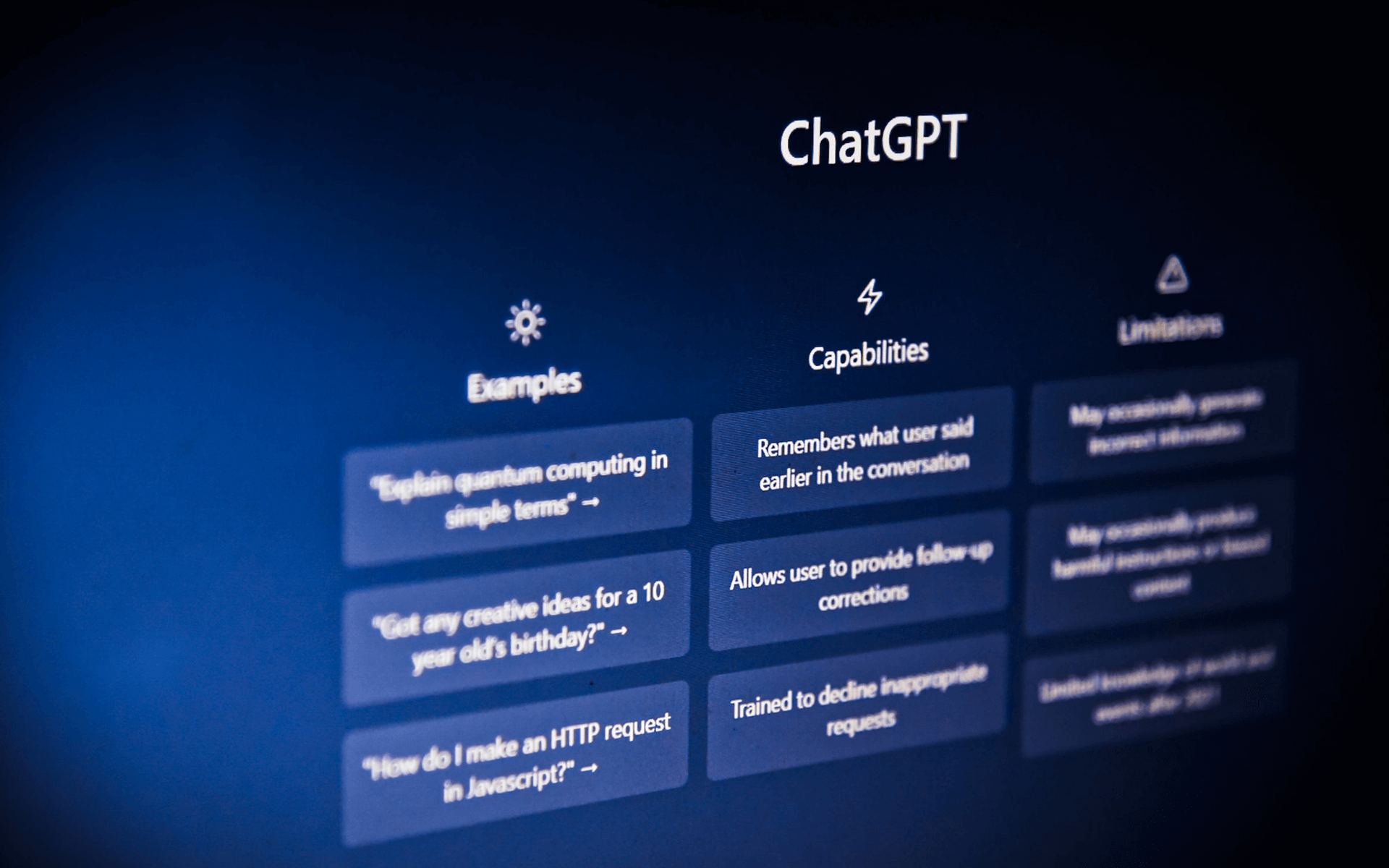What students need to know about generative AI tools like ChatGPT
Athabasca University to develop guidelines on ethical use of generative artificial intelligence in courses
ChatGPT took the world by storm when it became the fastest-growing app in history.
Since its launch in late 2022, other generative artificial intelligence (AI) tools have exploded in popularity and affected countless industries, including education. As a result, universities everywhere are having important conversations about the role of generative AI tools in teaching and learning, said Dr. Matthew Prineas, provost and vice-president academic at Athabasca University (AU).
“All of us recognize that these tools have had—and will continue to have—a profound effect on how we work and learn,” he said.
“Generative AI offers incredible creative opportunities for both students and faculty to enhance the learning process. It also has important limitations and, of course, the potential for misuse.”
“All of us recognize that these tools have had—and will continue to have—a profound effect on how we work and learn.”
– Dr. Matthew Prineas, provost and vice-president academic
AU to review ethical use of generative AI
A new academic committee has been tasked with reviewing the ethical use of generative AI tools such as ChatGPT in AU courses.
Led by the provost’s office and featuring leading experts in academic integrity, the committee will develop a set of principles and guidelines for AU students and faculty to use starting this fall.
“These guidelines will bring important clarity so that these tools can be used responsibly,” Prineas said.
Interim guidelines: ask before using generative AI
Until the guidelines have been developed and shared with students and faculty, Prineas said learners should always ask before using such tools.
“Unless otherwise stated in the course guidance, students should always seek guidance from their academic support before using ChatGPT or any other generative AI tool in their course,” he said.
Academic integrity is everyone’s responsibility
Students considering whether to use generative AI should consider how to apply the basic principles of academic integrity: honesty, trust, fairness, respect, and responsibility.
If students are allowed to use generative AI in a particular course, they must cite and acknowledge its use, Prineas said.
Most citation styles provide guidance on how to credit information generated by generative AI tools: the Chicago Manual of Style, the Modern Language Association (MLA), and the American Psychological Association (APA).
“The AI tool should never be the author,” said Prineas. “The student remains the sole author.”
All students should be familiar with AU’s Student Academic Misconduct Policy to understand what constitutes plagiarism, cheating, and other offences as defined by the policy, and potential consequences.
Write Site resources for students
The Write Site offers support services to help AU students with academic writing, and they have resources about topics such as how to cite sources and plagiarism, including how to avoid it.
Students can book an appointment if they are concerned about accidental plagiarism or need writing support.
Who, me? Cheat?: ChatGPT and Generative AI
Test your knowledge about using ChatGPT through an interactive, scenario-based forum on Sept. 5 organized by Write Site, the Faculty of Humanities and Social Sciences, and the library.
Panellists Dr. Eliana El Khoury and Dr. Stella George will lead a conversation on thinking ethically about generative AI. You can join in the discussion about how this topic impacts you, your peers, and the larger university community.
Register for AU’s Sept. 5 forum on generative AI
